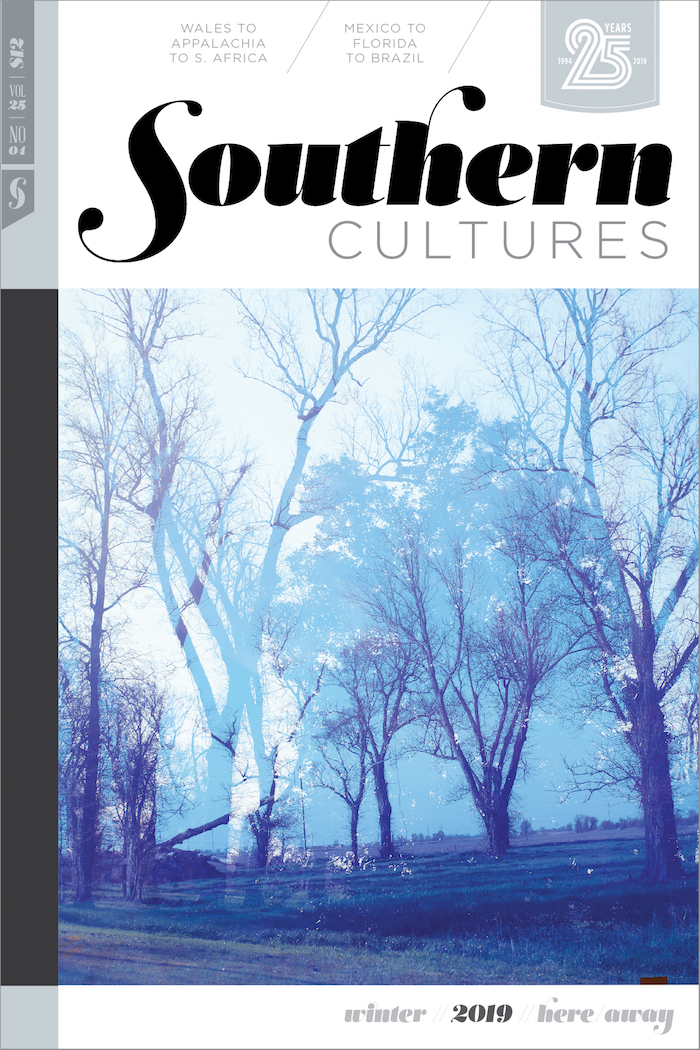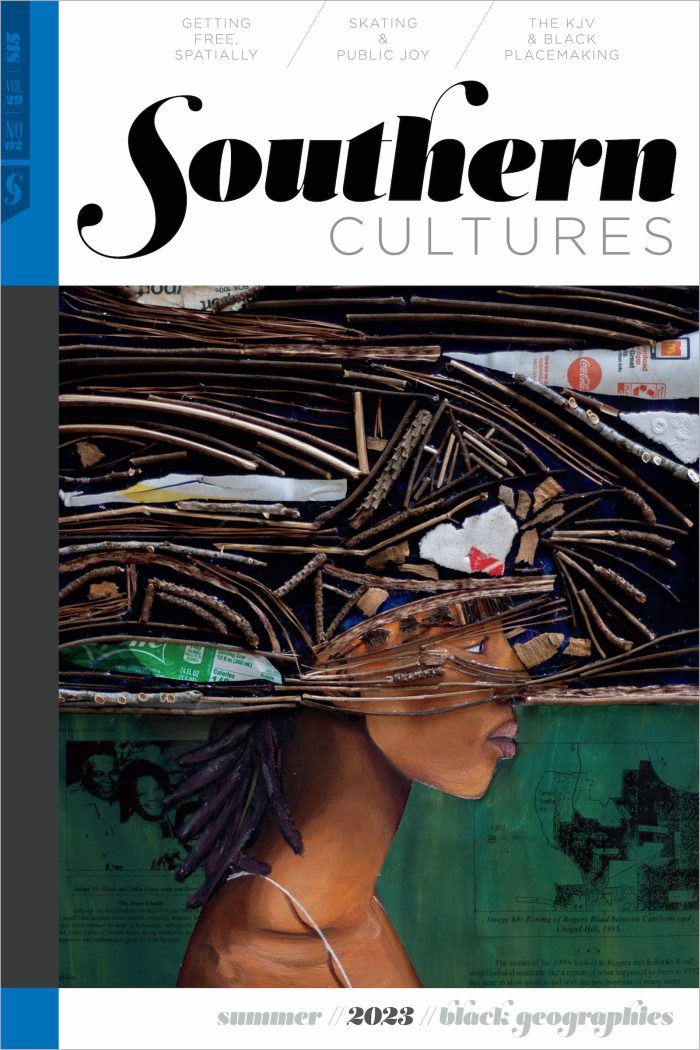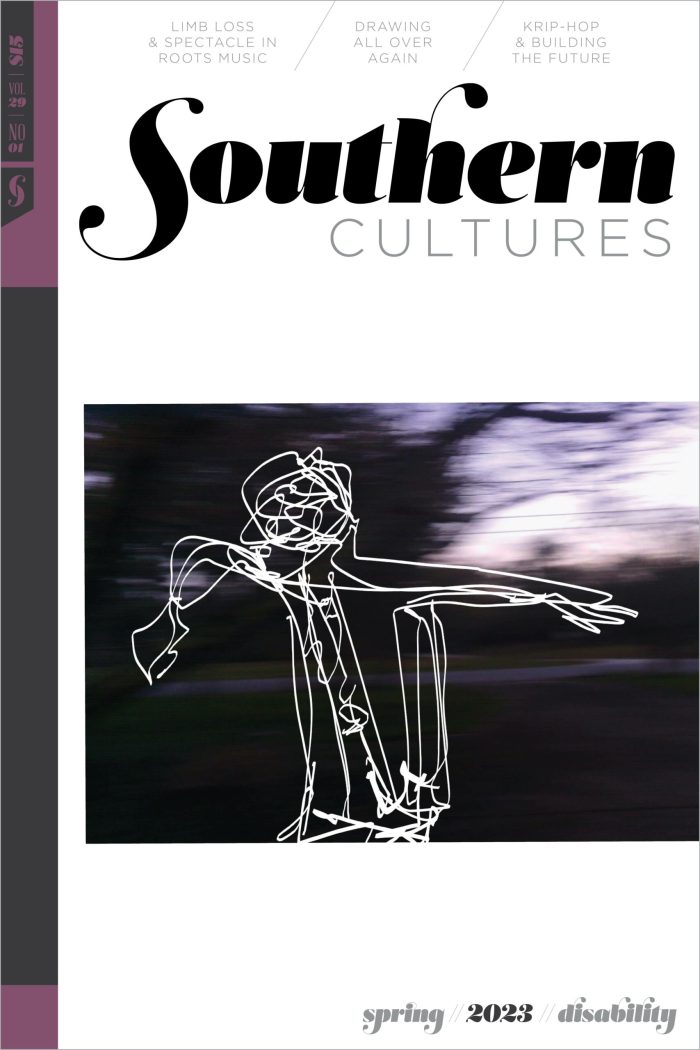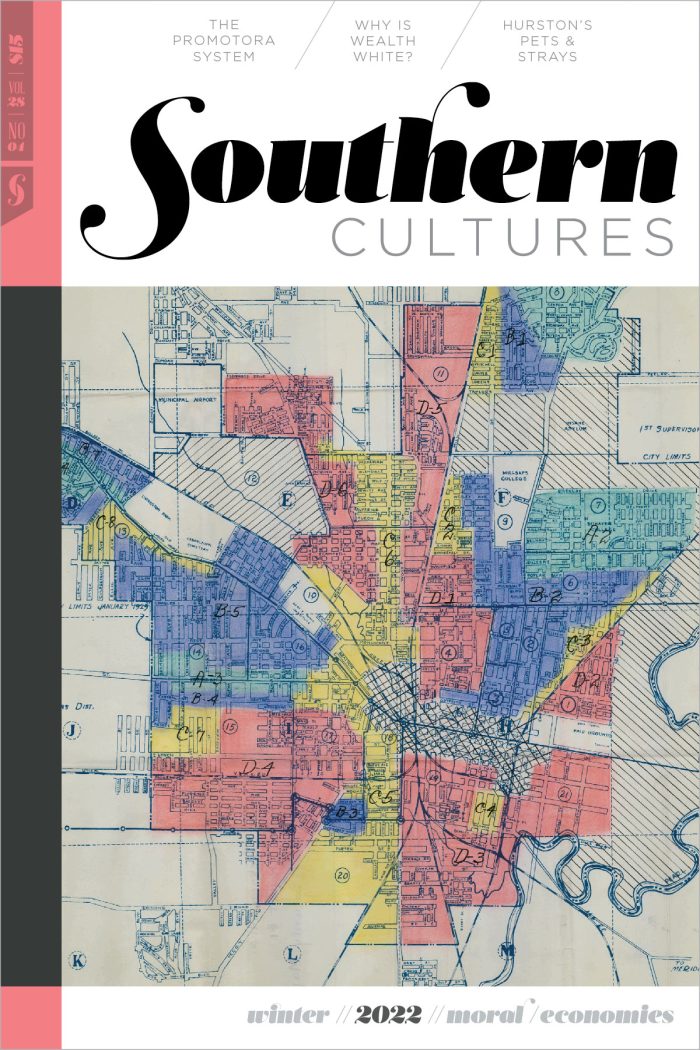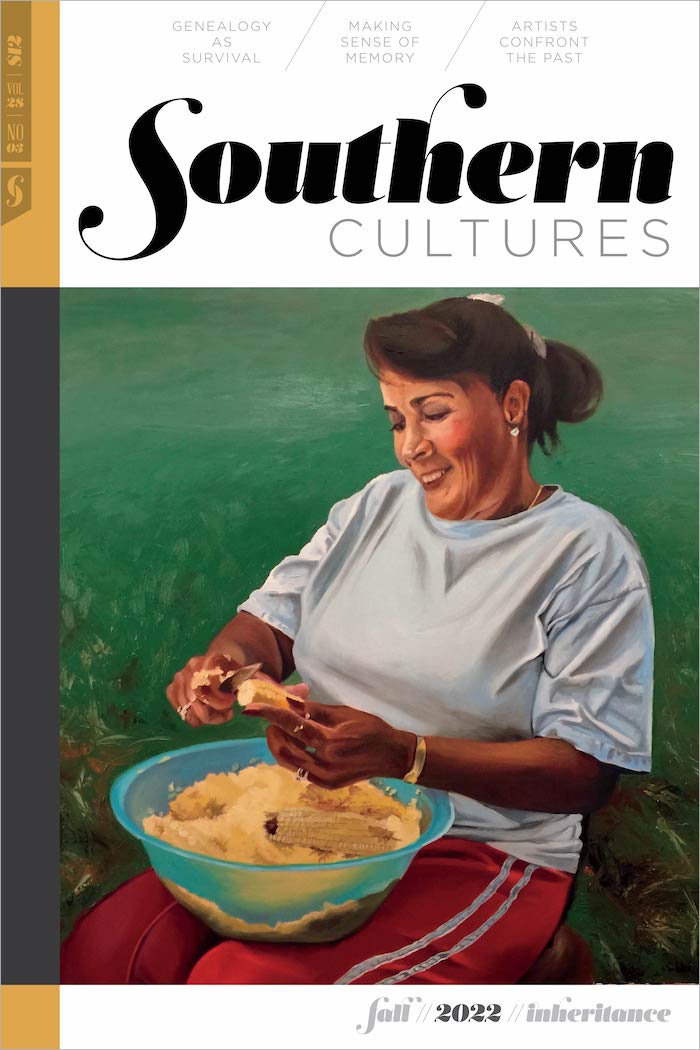Essay
BUY ACCESS
by Marcie Cohen Ferris
This special issue marks the closing of a year-long celebration of the twenty-fifth year of publication for Southern Cultures. Over that year, we turned to the themes that have animated the study of the South—Backward/Forward, Inside/Outside, Left/Right, and, for this issue, Here/Away—and the talent of four distinguished guest editors and scholars—Charles Reagan Wilson, William Sturkey, »
Essay
BUY ACCESS
by Karida L. Brown
“So crucial are these battles over this place that we have made war—and monuments, songs, stories, and quilts to give it meaning. Southern history—past, present, and future—is still being made.” When I received the invitation to serve as guest editor for this twenty-fifth anniversary Here/Away special issue of Southern Cultures, I was far, far away. »
Essay
American Indians, the Civil War, and Confederate Memory
by Malinda Maynor Lowery
When Robert E. Lee met Ulysses S. Grant at Appomattox in 1865, Grant introduced Lee to his personal military secretary, a man named Ely S. Parker. At first, the story goes, Lee refused to shake Parker’s hand, mistaking his darker complexion for that of an African American soldier in Union blue. But Parker was not »
Photo Essay
The Photographs of Hugh Mangum, 1897–1922
by Margaret Sartor
In the late 1890s, self-taught photographer Hugh Mangum (1877–1922) began riding the rails as an itinerant portraitist, traveling primarily in North Carolina and Virginia. Mangum worked during the rise of the segregationist laws of the Jim Crow era. Despite this, his portraits reveal a clientele that was both racially and economically diverse, and show lives »
Essay
E. McKnight Kauffer's Illustrated South
by Mary A. Knighton
In January 1941, literati tastemaker Carl van Vechten wrote in mock reproach to Gertrude Stein in Paris—whom he addressed as “Baby Woojums”—chastising her and her partner Alice B. Toklas for their absence when simply everyone else who mattered was there in Manhattan. To further pique the envy of author and art aficionado Stein, he noted »
Art
BUY ACCESS
Celebrating the Shared Folk Cultures of Appalachia and Wales
by Peter Stevenson
“Appalachia and Wales share many folk tales and traditions, such as those of the granny women. These sisters made tinctures and potions and had remedies for every kind of ailment, though not of the hubble-bubble kind.” In May 2019, a group of illustrators, filmmakers, photographers, book artists, and folk artists from West Wales exhibited their »
Essay
by Karen L. Cox
Grey Gardens, the house first made famous by the 1975 documentary on the lives of Jackie Kennedy’s aunt and cousin—better known as “Big Edie” and “Little Edie” Beale—is, in many ways, familiar in southern culture. The story of the Beales and their derelict home in East Hampton, New York, later dramatized in the 2009 hbo »
Music
BUY ACCESS
An Alabama Diaspora
by Burgin Mathews
“From the heyday of swing through the dawn of bop, wherever there was jazz, there was some piece of Birmingham.” This is the story of jazz in Birmingham, and of Birmingham in jazz—of how Alabama’s “Magic City” helped create some of the nation’s most swinging and celestial sounds, and of how that city, in the »
Art
A Collective Flight of Memory
by Jamaal Barber
Essay
The United Farm Workers in Florida Citrus, 1972–1977
by Terrell Orr
“If labor organizers had learned anything from decades of small victories and stubborn failures the U.S. South, it was that interracial unions were hard work.” “I have your letter of June 1 [1974] and suggest that if you really want to know what is involved in organizing a Union, you should put some time into »
Food
Dishing the African Diaspora in Brazil and the United States
by Olivia Ware Terenzio
“As a national dish, the melting pot narrative of feijoada bolsters the image of Brazil as a racial democracy.” At a Brazilian restaurant in Astoria, Queens, a steam table simmered with collard greens, stewed okra, cornbread, and a meat-specked stew. “The seats were packed with Brazilians speaking Portuguese,” Francis Lam wrote in the New York »
Memoir
by Bill Smith
“The sky had lightened. It was then that I realized that not only did I not have any idea where I was, but that neither did anyone else. Luis was not the least bit concerned.” I’ve never wanted to get married, but if I ever did it should probably be to Luis. I can’t even »
Poetry
BUY ACCESS
by Anna Lena Phillips Bell
Endearment Laud a bad guy, dub a gal ugly– a bad day, glub by glub. Lay by a glad day— a dab, a daub, a gaudy bud. Land ably, ladybug. Endearment Better nab a tea urn, a batter beater, a bun tub, a neater tenet. Beat a taunt, rebut a brute. An upbeat nature, an utter ebb— Tune, retune, bee tureen. Turn true, tuna beret, benter tuba, butter bean. Endearment Lover, let our love rule »
Interview
by Jennifer Atkins,
Millicent Johnnie
“I love when I hear the sound of resistance, how the drum informs how people navigate space. The body reveals what’s happening in society.” Home. That was what I felt when I first met Millicent Johnnie almost twenty years ago. We laughed too loudly to care, talked about food, and shared memories from our Louisiana »
